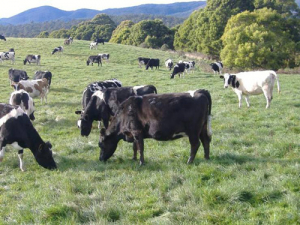NZ Catchment Groups Thrive with ‘Source to Sea’ Approach
The most successful catchment groups in NZ are those that have 'a source to sea' approach.
 Compensation issues need to be clarified in the government’s biosecurity response guide, says a new report on New Zealand’s veterinary services.
Compensation issues need to be clarified in the government’s biosecurity response guide, says a new report on New Zealand’s veterinary services.
Compensation issues need to be clarified in the government’s biosecurity response guide, says a new report on New Zealand’s veterinary services.
This includes confirming areas where people who had suffered losses would be eligible for compensation, the report says.
This applies particularly to ‘grey’ areas such as welfare slaughter in the case of a significant disease outbreak like foot and mouth disease, or for losses because of a national livestock standstill, says the report, which compares NZ’s vet services and systems against international standards.
The report is largely complimentary but has raised some recommendations.
Systems, processes and supporting logistics need to be developed for dealing with compensation claims for medium-large responses, as the current process is “very cumbersome and unworkable,” the report says.
The ‘Whole of Government Biosecurity Response’ guide also needs to be updated to outline the future integration of government – industry agreement (GIA) partners into biosecurity responses, the report says.
The report was done in late 2015 by two evaluators from the Ministry for Primary Industries (MPI) Dr Andre van Halderen (technical expert and coordinator) and Dr Erin Daldry (lead auditor); Dr Chris Morley was the industry evaluator.
The self-evaluation of the NZ veterinary services was based on the World Organisation for Animal Health (OIE) methodology.
It was released last month.
It recommends that the roles and responsibilities regarding disease preparedness, as well as agreement on who is responsible for leading what type of response, need to be clarified.
“There should also be clear criteria and cross-organisational processes for involvement in emerging disease scenarios, particularly where non-infectious diseases are involved,” it says.
In other recommendations it says the animal welfare project should be prioritised and recommendations implemented to ensure the animal welfare system (including leadership and roles and responsibilities) is clearly understood, to allow for a more strategic approach to dealing with animal welfare issues.
The report also says that after multiple mergers and restructures of MPI needs to develop a clear, comprehensive organisational chart. This should clearly outline functions, key role holders and the main areas of interaction between the different parts of the organisation.
"This will be useful for MPI staff and stakeholders. This should be widely publicised, freely available and frequently updated to ensure currency. This should help stakeholders identify and find appropriate parties in MPI."
MPI should ensure there is systematic consultation to ensure all relevant parties are consulted and all comments considered.
It also needs to be ensured that the depth of response to consultation is appropriate for the issues raised, and that adequate time is allowed when comments are requested.
The report says the access to markets via NAIT has brought about significant improvements to animal traceability.
The review of NAIT now starting is an ideal opportunity to improve the system.
Global trade has been thrown into another bout of uncertainty following the overnight ruling by US Supreme Court, striking down President Donald Trump's decision to impose additional tariffs on trading partners.
Controls on the movement of fruit and vegetables in the Auckland suburb of Mt Roskill have been lifted.
Fonterra farmer shareholders and unit holders are in line for another payment in April.
Farmers are being encouraged to take a closer look at the refrigerants running inside their on-farm systems, as international and domestic pressure continues to build on high global warming potential (GWP) 400-series refrigerants.
As expected, Fonterra has lifted its 2025-26 forecast farmgate milk price mid-point to $9.50/kgMS.
Bovonic says a return on investment study has found its automated mastitis detection technology, QuadSense, is delivering financial, labour, and animal-health benefits on New Zealand dairy farms worth an estimated $29,547 per season.

OPINION: Here w go: the election date is set for November 7 and the politicians are out of the gate…
OPINION: ECan data was released a few days ago showing Canterbury farmers have made “giant strides on environmental performance”.